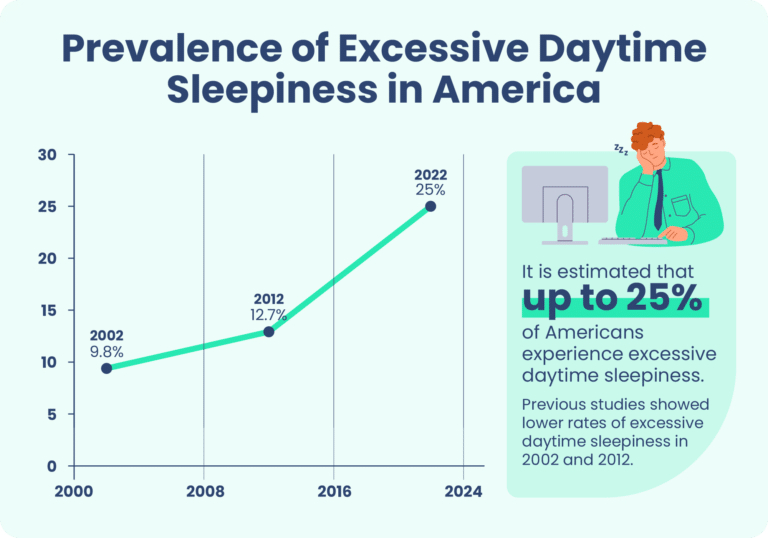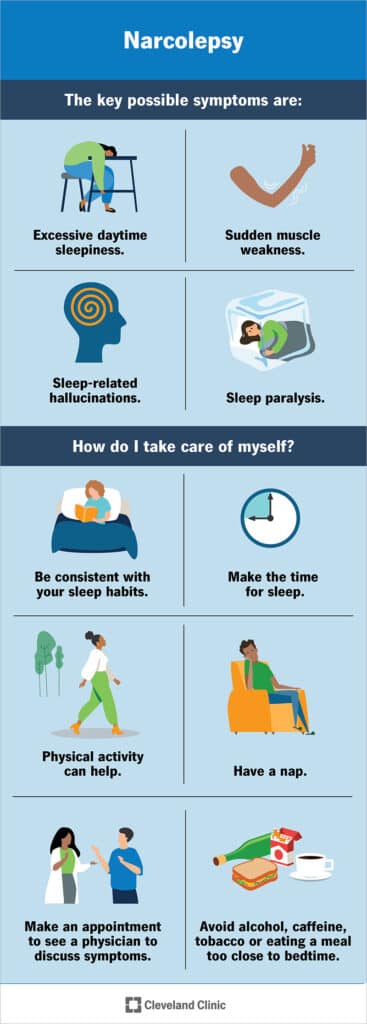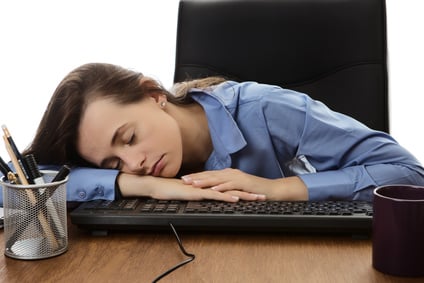Falling asleep when you sit down can happen for various reasons, ranging from lifestyle factors to underlying medical conditions. Occasional drowsiness may not be a cause for concern, but if it happens frequently, it could point to a sleep disorder or other health issues. Here’s an in-depth look at the possible causes, signs of concern, and what you can do to address this issue.
1. Common Causes of Falling Asleep When Sitting

Lifestyle Factors
- Sleep Deprivation: Insufficient sleep can lead to extreme tiredness, making it hard to stay awake, especially in sedentary situations like sitting.
- Poor Sleep Hygiene: Irregular sleep schedules, caffeine or alcohol before bed, or excessive screen time can reduce sleep quality.
- Stress or Anxiety: Mental strain can exhaust your body and mind, leading to sudden bouts of sleepiness.
Medications
- Drowsy Side Effects: Medications like antihistamines, antidepressants, sedatives, and blood pressure drugs can make you sleepy during the day.
Diet and Lifestyle
- Nutritional Imbalances: A poor diet can result in low energy levels.
- Sedentary Lifestyle: Lack of regular exercise may cause fatigue and lethargy.
2. Medical Conditions Linked to Daytime Sleepiness
Sleep Disorders
- Obstructive Sleep Apnea (OSA): Characterized by repeated interruptions in breathing during sleep, leading to poor sleep quality and excessive daytime sleepiness.
- Narcolepsy: A neurological disorder causing sudden sleep attacks, even in active situations.
- Restless Legs Syndrome (RLS): An uncontrollable urge to move the legs, especially at night, disrupting sleep.
Other Health Issues
- Chronic Fatigue Syndrome (CFS): Persistent, unexplained fatigue that doesn’t improve with rest.
- Depression or Bipolar Disorder: These conditions can affect sleep patterns, leading to excessive tiredness.
- Thyroid Disorders: Hypothyroidism can slow metabolism and cause drowsiness.
- Anemia: A lack of red blood cells reduces oxygen supply to tissues, leading to fatigue.
- Neurological Conditions: Parkinson’s disease, multiple sclerosis, or brain injuries can cause excessive sleepiness.
3. When to Seek Medical Attention
You should consult a doctor if:
- You fall asleep unexpectedly during activities like talking, eating, or driving.
- Your daytime sleepiness affects your quality of life or daily activities.
- You experience additional symptoms like loud snoring, difficulty concentrating, hallucinations, or sudden muscle weakness.
4. Diagnostic and Treatment Options

Diagnosis
Your doctor may:
- Conduct a sleep study (polysomnography) to analyze your sleep cycles.
- Recommend a Multiple Sleep Latency Test (MSLT) to assess how quickly you fall asleep during the day.
- Review your medications and health history.
- Suggest keeping a sleep diary to track your sleep habits and daytime drowsiness.
Treatment
Treatment depends on the underlying cause:
- Lifestyle Adjustments: Improve sleep hygiene, establish regular sleep schedules, and create a comfortable sleep environment.
- Medications: Wakefulness-promoting drugs like modafinil or treatments for underlying conditions like thyroid disorders or anemia.
- Therapies: Cognitive-behavioral therapy (CBT) for insomnia or anxiety, or continuous positive airway pressure (CPAP) for sleep apnea.
- Behavioral Changes: Strategic naps, avoiding caffeine/alcohol, and engaging in regular physical activity.
5. Tips for Managing Daytime Sleepiness
- Follow a Consistent Sleep Routine: Go to bed and wake up at the same time daily, even on weekends.
- Create a Restful Environment: Keep your bedroom dark, quiet, and cool.
- Exercise Regularly: Physical activity promotes better sleep and alertness.
- Limit Caffeine and Alcohol: Avoid these stimulants and depressants, particularly before bedtime.
- Take Short Power Naps: A brief nap of 10–20 minutes can help recharge without affecting nighttime sleep.
6. Potential Risks of Ignoring the Problem
Persistent daytime sleepiness can lead to:
- Decreased productivity at work or school.
- Increased risk of accidents, especially while driving or operating machinery.
- Strained personal relationships due to mood swings or lack of focus.
Causes of Falling Asleep When Sitting Down
| Cause | Description | Symptoms | Treatment Options |
|---|---|---|---|
| Sleep Deprivation | Insufficient sleep due to lifestyle, stress, or poor sleep hygiene. | Fatigue, trouble concentrating, irritability, unrefreshing sleep. | Maintain consistent sleep schedule, optimize sleep environment, limit caffeine/alcohol, and improve sleep hygiene. |
| Hypersomnia | Excessive daytime sleepiness despite adequate nighttime sleep. | Difficulty staying awake, long naps, unrefreshing sleep. | Sleep hygiene improvements, medications (e.g., stimulants), lifestyle changes. |
| Narcolepsy | Neurological condition causing sudden, uncontrollable sleep episodes. | Sleep attacks, cataplexy (muscle weakness), hallucinations, sleep paralysis. | Medications (e.g., modafinil, sodium oxybate), scheduled naps, support groups. |
| Sleep Apnea | Breathing interruptions during sleep due to airway blockages. | Loud snoring, gasping for air, daytime fatigue, morning headaches. | CPAP therapy, lifestyle changes (weight loss, avoiding alcohol), surgery in severe cases. |
| Restless Legs Syndrome (RLS) | Neurological disorder causing an urge to move legs, often worsening at night. | Uncomfortable leg sensations, disrupted sleep, daytime fatigue. | Medications (e.g., dopamine agonists), iron supplements if deficient, lifestyle changes. |
| Depression | Mental health disorder affecting mood and energy levels. | Low mood, lack of interest, excessive sleep or insomnia, fatigue. | Therapy (CBT), antidepressants, lifestyle modifications, stress management. |
| Bipolar Disorder | Mental health condition causing mood swings, often affecting sleep patterns. | Periods of mania (high energy) and depression, disrupted sleep, daytime drowsiness. | Mood stabilizers, psychotherapy, consistent sleep routine. |
| Chronic Fatigue Syndrome (CFS) | Persistent, unexplained fatigue that doesn’t improve with rest. | Severe tiredness, memory/concentration problems, muscle/joint pain. | Pacing and energy management, therapy, medications for symptom relief (e.g., pain or sleep aids). |
| Circadian Rhythm Disorders | Misalignment between internal body clock and external environment. | Difficulty falling asleep/waking at the desired time, daytime sleepiness. | Light therapy, melatonin, consistent sleep-wake schedule, avoiding blue light exposure before bedtime. |
| Medication Side Effects | Drowsiness caused by sedatives, antihistamines, or other medications. | Daytime sleepiness, fatigue, difficulty focusing. | Adjust dosage/timing, switch medications under a doctor’s supervision, avoid combining with alcohol. |
| Alcohol/Drug Use | Disrupted sleep patterns due to substance use. | Poor sleep quality, frequent awakenings, daytime drowsiness. | Limit or avoid alcohol, seek treatment for substance abuse if applicable. |
| Thyroid Disorders | Imbalances in thyroid hormone levels affecting energy and sleep. | Fatigue, weight changes, cold/heat sensitivity, sleep disturbances. | Medications to regulate thyroid levels (e.g., levothyroxine), regular monitoring by a healthcare provider. |
| Anemia | Lack of red blood cells or hemoglobin causing reduced oxygen delivery. | Extreme fatigue, weakness, pale skin, shortness of breath. | Treat underlying cause (e.g., iron supplements, B12 injections, dietary changes). |
| Electrolyte Imbalances | Disrupted balance of minerals essential for bodily functions. | Fatigue, confusion, muscle weakness, irregular heartbeat. | Address underlying cause, electrolyte supplementation, proper hydration. |
| Neurological Disorders | Conditions like Parkinson’s or multiple sclerosis disrupting sleep regulation. | Daytime sleepiness, difficulty with movement, other condition-specific symptoms. | Disease-specific treatments, sleep hygiene improvements, physical therapy, medications to manage symptoms. |
Conclusion
Occasionally falling asleep when sitting down is normal, especially after a poor night’s sleep. However, if it happens regularly, it could indicate an underlying sleep disorder or medical condition. By addressing lifestyle factors, seeking medical advice, and following a treatment plan, you can regain control of your energy levels and improve your quality of life.
If you suspect a serious issue, don’t hesitate to consult a healthcare professional for an accurate diagnosis and tailored treatment plan.
FAQs
1. Is it normal to fall asleep when I sit down?
Occasionally falling asleep when sitting down can be normal if you’re sleep-deprived or particularly tired. However, if it happens frequently, it may indicate an underlying issue such as sleep apnea, narcolepsy, or hypersomnia.
2. What is hypersomnia, and how does it relate to daytime sleepiness?
Hypersomnia is a condition characterized by excessive daytime sleepiness despite adequate nighttime sleep. It can cause frequent naps and difficulty staying awake during sedentary activities like sitting or reading.
3. Could medications be causing my sleepiness?
Yes, certain medications, such as antihistamines, antidepressants, sedatives, and some painkillers, can cause drowsiness. Discuss your medication regimen with your doctor if you suspect it’s contributing to excessive sleepiness.
4. What is narcolepsy, and how does it differ from regular sleepiness?
Narcolepsy is a neurological disorder that disrupts the brain’s ability to regulate sleep-wake cycles. It often causes sudden, uncontrollable sleep attacks, even in the middle of activities, and is sometimes accompanied by cataplexy (sudden muscle weakness).
5. How do I know if my sleepiness is related to a sleep disorder?
Signs of a sleep disorder include excessive daytime sleepiness, loud snoring, waking up gasping for air, frequent awakenings at night, and experiencing sudden muscle weakness during strong emotions. A sleep study can help confirm a diagnosis.
6. What can I do to prevent falling asleep during the day?
- Establish a consistent sleep schedule.
- Optimize your sleep environment.
- Avoid caffeine and alcohol before bed.
- Take short naps (10–20 minutes) if necessary.
- Address underlying medical or sleep conditions.
7. Can depression or anxiety cause excessive daytime sleepiness?
Yes, both depression and anxiety can disrupt sleep patterns, leading to fatigue and excessive sleepiness during the day. These mental health conditions often require treatment through therapy, medication, or both.
8. When should I see a doctor about my sleepiness?
You should consult a doctor if:
- Daytime sleepiness affects your daily life.
- You fall asleep suddenly or without warning.
- You have other symptoms like loud snoring, difficulty concentrating, or hallucinations during sleep.
References
- Excessive Daytime Sleepiness (Hypersomnia)
- Narcolepsy Overview
- Sleep Disorders and Daytime Sleepiness


